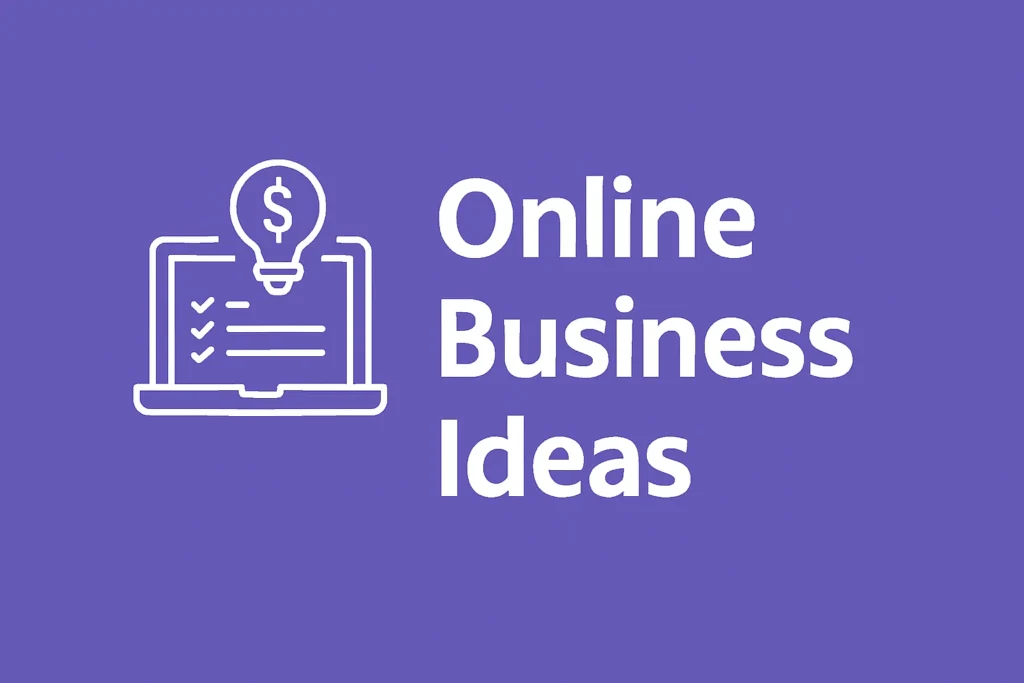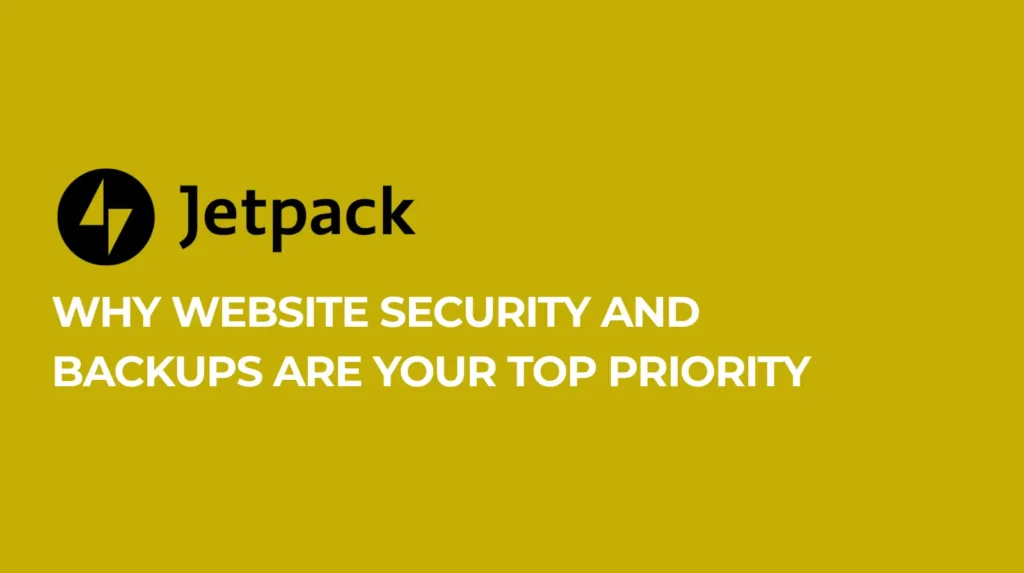The digital economy is booming. With global ecommerce sales projected to exceed $7.9 trillion by 2027, there has never been a better time to launch an online venture. The internet has shattered geographical barriers, offering vast distribution networks and marketing platforms that make starting a business more accessible than ever.
Whether you’re looking for a side hustle or a full-time career change, the right online business idea can turn your skills and passions into a reliable income stream. But with so many options, where do you begin? If you’re wondering how to start a blog or launch a store, this guide is your starting point.
We’ve curated 23 of the most viable and profitable online business ideas for 2025, complete with actionable steps and expert tips to help you get started.
Part 1: Ecommerce & Product-Based Businesses
1. Launch a Print-on-Demand (POD) Store
Print-on-Demand (POD) is a low-risk ecommerce model where you sell custom-designed products like t-shirts, mugs, and posters without holding any inventory. You create the designs, and a third-party supplier (like Printify) handles printing and shipping directly to the customer when an order is placed.
- Pros: Low startup costs, no inventory management, wide product variety.
- Cons: Lower profit margins, dependence on supplier quality.
- Getting Started:
- Choose a niche (e.g., pets, hobbies, humor).
- Create designs using tools like Canva or Adobe Illustrator.
- Select a POD provider and connect it to an ecommerce platform like Shopify.
- Market your products on social media and through targeted ads.
2. Start a Dropshipping Business
Dropshipping allows you to run an online store without stocking any products. When a customer makes a purchase, you forward the order to a third-party supplier who ships the product directly. It’s a powerful way to get into ecommerce with minimal upfront investment.
- Pros: Minimal financial risk, location independence, scalable.
- Cons: High competition, reliance on supplier for shipping and quality.
- Getting Started:
- Find a profitable niche using keyword research.
- Find reliable suppliers on platforms like AliExpress or SaleHoo.
- Build your store using a platform like Shopify. Check out our list of the best dropshipping apps for Shopify to get started.
- Focus on marketing and excellent customer service.
3. Write and Publish an eBook
If you have expertise in a specific area, writing an eBook is a fantastic way to monetize your knowledge. Ebooks are digital products with high-profit margins and can be sold infinitely without inventory costs.
- Pros: High-profit margins, establishes you as an authority, passive income potential.
- Cons: Requires strong writing skills and marketing effort.
- Getting Started:
- Choose a topic you are knowledgeable and passionate about.
- Outline, write, and edit your eBook. Use tools like Grammarly for polishing.
- Design a professional cover using a tool like Designrr.
- Publish on platforms like Amazon Kindle Direct Publishing (KDP) or sell it directly from your website.
4. Sell Stock Photos Online
For talented photographers, selling stock photos can be a great source of passive income. Businesses, bloggers, and marketers are constantly searching for high-quality, unique images for their content.
- Pros: Passive income, creative outlet, builds a photography portfolio.
- Cons: Competitive market, requires high-quality gear and editing skills.
- Getting Started:
- Identify a niche (e.g., business, nature, technology).
- Take high-resolution, well-composed photos.
- Edit your photos to professional standards.
- Submit your work to stock photo websites like Adobe Stock, Shutterstock, or Getty Images.
5. Buy and Sell Domain Names
Domain flipping is the practice of buying domain names that are potentially valuable and selling them for a profit. A memorable, brandable, or keyword-rich domain can be a valuable digital asset.
- Pros: High potential for profit, low initial investment.
- Cons: Speculative, requires patience and market knowledge.
- Getting Started:
- Research trending keywords and industries.
- Use domain marketplaces like GoDaddy Auctions or Flippa to find undervalued domains.
- Purchase promising domains and list them for sale at a higher price. Need help choosing a business domain name? Check out our guide.
Part 2: Knowledge & Content Businesses
6. Create and Sell Online Courses
The e-learning market is projected to reach $457.8 billion by 2026. If you’re an expert in a field be it coding, marketing, or even baking you can create a video course and sell it to a global audience.
- Pros: Highly scalable, passive income, positions you as an expert.
- Cons: Time-intensive to create, requires marketing to find students.
- Getting Started:
- Validate your course idea by surveying your target audience.
- Choose a platform like Teachable or Podia. Explore our list of Teachable alternatives to find the best fit.
- Outline your curriculum and record your video lessons.
- Launch and promote your course through webinars, email marketing, and ads.
7. Build an Affiliate Marketing Business
Affiliate marketing involves promoting other companies’ products and earning a commission for every sale made through your unique affiliate link. It’s a popular monetization strategy for bloggers and content creators.
- Pros: Low startup cost, no need to create a product, flexible.
- Cons: Income can be inconsistent, requires building an audience.
- Getting Started:
- Choose a niche you are passionate about.
- Start a blog or YouTube channel to build an audience.
- Join affiliate marketing programs like Amazon Associates or the Semrush affiliate program.
- Create authentic content that naturally incorporates your affiliate links.
8. Start a Niche Blog
Blogging is a time-tested online business that remains highly effective. By creating valuable content in a specific niche, you can build a loyal audience and monetize your site through ads, affiliate marketing, sponsored posts, or selling your own products.
- Pros: Establishes authority, multiple monetization streams, builds a community.
- Cons: Takes time to build traffic, requires consistent content creation.
- Getting Started:
- Follow our step-by-step guide on how to start a blog.
- Choose a reliable web host like Bluehost or WP Engine.
- Create a content strategy based on keyword research.
- Publish high-quality articles consistently and promote them.
9. Launch a YouTube Channel
Video is the dominant form of content online. Starting a YouTube channel allows you to connect with an audience on a personal level. You can monetize through the YouTube Partner Program (ads), sponsorships, affiliate marketing, and merchandise.
- Pros: Massive potential audience, strong community building, diverse monetization options.
- Cons: Requires video production skills, can be slow to grow initially.
- Getting Started:
- Pick a niche you can create consistent video content for.
- Invest in a decent camera and microphone.
- Learn basic video editing.
- Optimize your video titles, descriptions, and thumbnails for discoverability.
10. Produce a Podcast
Podcasting has exploded in popularity. If you prefer audio over video, starting a podcast can be a great way to build an audience and authority in your niche. Monetization comes from sponsorships, affiliate ads, and selling premium content.
- Pros: Builds an intimate connection with listeners, relatively low startup cost.
- Cons: Discoverability can be challenging, requires consistent production.
- Getting Started:
- Define your podcast’s theme and format.
- Purchase a quality USB microphone.
- Record and edit your first few episodes.
- Submit your podcast to directories like Apple Podcasts and Spotify.
11. Become a Social Media Influencer
If you have a knack for creating engaging content and building a following on platforms like Instagram, TikTok, or LinkedIn, you can become a social media influencer. Brands pay influencers to promote their products to a dedicated audience.
- Pros: Can be highly lucrative, flexible, builds a personal brand.
- Cons: Requires consistency and authenticity, follower fatigue is real.
- Getting Started:
- Choose a platform and niche that aligns with your personality.
- Post high-quality, engaging content consistently.
- Engage with your followers to build a community.
- Reach out to brands for collaborations or join influencer marketing platforms.
Part 3: Creative & Marketing Services
12. Offer Freelance Services
Freelancing is one of the quickest ways to start an online business. If you have a marketable skill on writing, graphic design, programming, video editing you can offer your services to clients around the world on platforms like Upwork, Fiverr, or by building your own client base.
- Pros: Fast way to earn income, high demand for skilled professionals, flexible work schedule.
- Cons: Requires self-discipline, income can be unstable at first.
- Getting Started:
- Identify your most valuable skill.
- Create a portfolio showcasing your best work.
- Create profiles on top freelance platforms.
- Use a tool like Bonsai to manage proposals, contracts, and invoicing.
13. Sell Digital Marketing Services
Businesses of all sizes need digital marketing to thrive. If you have expertise in SEO, PPC, content marketing, or social media marketing, you can offer these services as a consultant or a freelancer. The demand for skilled digital marketers is incredibly high.
- Pros: High-income potential, recurring revenue from retainers, always in demand.
- Cons: Requires staying up-to-date with industry changes, results-driven.
- Getting Started:
- Specialize in one or two areas (e.g., SEO for SaaS companies).
- Build a professional website showcasing your services and case studies.
- Network on LinkedIn and in relevant online communities to find your first clients.
14. Start a Digital Marketing Agency
Once you’ve honed your skills as a freelance marketer, you can scale your operations by starting an agency. This involves hiring other specialists to handle client work, allowing you to focus on growth and strategy.
- Pros: Highly scalable, significant income potential.
- Cons: Requires management skills, higher overhead.
- Getting Started:
- Define your agency’s niche and service offerings.
- Develop standardized processes for client onboarding and project management.
- Hire your first team members, either as freelancers or employees.
15. Become a SEO Consultant
Search Engine Optimization (SEO) is a critical component of digital marketing. As an SEO consultant, you help businesses improve their website’s visibility on search engines like Google to drive organic traffic. This requires a deep understanding of how search engines work.
- Pros: In-demand skill, high-value service, direct impact on client success.
- Cons: Steep learning curve, algorithm updates require constant learning.
- Getting Started:
- Master the fundamentals of on-page, off-page, and technical SEO. Using tools like Semrush is a great way to learn.
- Build a portfolio by optimizing your own website or offering services to small businesses.
- Market your expertise through content marketing and networking.
16. Manage Facebook Ad Campaigns
Facebook (Meta) Advertising is a powerful tool for businesses to reach their target audience. As a Facebook Ads specialist, you create, manage, and optimize ad campaigns to generate leads and sales for clients.
- Pros: Measurable ROI for clients, high demand, potential for performance-based fees.
- Cons: Requires a budget for ad spend, platform changes frequently.
- Getting Started:
- Take courses to learn the ins and outs of the Meta Ads platform.
- Get certified through Meta Blueprint.
- Start with a small budget for your own projects or a trial client to build a case study.
17. Work as a Freelance Copywriter
Copywriters are masters of persuasion. They write compelling text for websites, emails, ads, and sales pages to drive action. If you have a way with words, copywriting is a highly valuable and lucrative skill.
- Pros: Creative and challenging work, location independent, high earning potential.
- Cons: Can be high-pressure with tight deadlines, requires understanding psychology.
- Getting Started:
- Study the principles of direct-response copywriting.
- Build a portfolio with spec work (hypothetical projects) if you don’t have clients.
- Network with marketing managers and business owners.
Part 4: Technical & Development Services
18. Become a Web Developer
In our digital-first world, nearly every business needs a website. Web developers use coding languages like HTML, CSS, and JavaScript to build and maintain websites. It’s a technical skill that commands high rates.
- Pros: Excellent pay, constant learning opportunities, high demand.
- Cons: Requires significant time to learn coding, can be mentally demanding.
- Getting Started:
- Enroll in a coding bootcamp or take online courses from platforms like Codecademy or freeCodeCamp.
- Build personal projects to create a portfolio.
- Start with smaller freelance projects to gain experience.
- Specialize in a platform like WordPress or Shopify development.
19. Develop Mobile Apps
With billions of smartphone users worldwide, the mobile app market is massive. App developers create applications for iOS and Android devices. This is one of the most profitable tech-based business ideas if you have the right skills.
- Pros: Huge market, potential for viral success, high-income potential.
- Cons: Highly competitive, requires advanced programming skills.
- Getting Started:
- Learn a programming language like Swift (for iOS) or Kotlin (for Android).
- Develop and launch your own simple app to learn the process.
- Offer your services as a freelance app developer.
20. Sell WordPress Themes and Plugins
WordPress powers over 43% of all websites on the internet. If you’re a developer and designer, you can create and sell premium WordPress themes and plugins on marketplaces like ThemeForest and CodeCanyon, or from your own site.
- Pros: Scalable passive income, creative freedom.
- Cons: Requires coding and design skills, ongoing customer support is necessary.
- Getting Started:
- Identify a need in the market for a specific theme or plugin functionality.
- Develop, test, and refine your product.
- Create excellent documentation and offer reliable support. Check out some of the best WordPress page builders for inspiration.
21. Provide Virtual Assistant (VA) & Data Management Services
Many entrepreneurs and executives are overwhelmed with administrative tasks. As a Virtual Assistant, you provide remote support for tasks like email management, scheduling, social media updates, and data entry.
- Pros: Wide range of potential clients, flexible work, low barrier to entry.
- Cons: Pay can be lower initially, requires strong organizational skills.
- Getting Started:
- Define the services you will offer.
- Set your rates (hourly or by project).
- Market your services on freelance platforms and social media.
22. Start a Stock Market/Fintech Newsletter
This is a modern take on “trading on the stock market.” Instead of just trading, you build a business around your financial knowledge. By producing a high-quality newsletter with market analysis, stock picks, or fintech trends, you can build a paid subscriber base.
- Pros: Builds authority, recurring revenue from subscriptions, leverages your expertise.
- Cons: High responsibility, requires deep market knowledge and compliance awareness.
- Getting Started:
- Choose a specific niche (e.g., tech stocks, crypto, personal finance for millennials).
- Use a platform like Substack or ConvertKit to manage your newsletter.
- Offer a free version to build an audience, then launch a paid tier with premium content.
23. Offer Website Maintenance Packages
Many small businesses lack the time or technical skill to keep their websites updated, secure, and backed up. You can offer monthly website maintenance packages, providing a steady stream of recurring revenue.
- Pros: Stable, recurring income; builds long-term client relationships.
- Cons: Requires technical knowledge (especially WordPress), can be on-call for emergencies.
- Getting Started:
- Define your service tiers (e.g., basic, pro, premium).
- Create a checklist of monthly tasks (updates, backups, security scans, performance checks).
- Market your services to small businesses that have existing websites.
Final Thoughts
The journey of starting an online business is both challenging and incredibly rewarding. The key is to choose an idea that aligns with your skills, interests, and market demand. Start small, test your ideas, and be prepared to learn and adapt. The digital landscape is always evolving, but the opportunity for success has never been greater.
Ready to take the next step? Explore our detailed guide on the best web hosting services for small businesses to build the foundation for your new venture.








